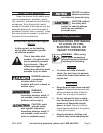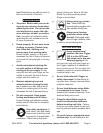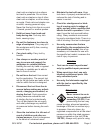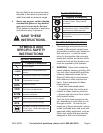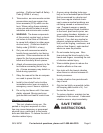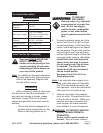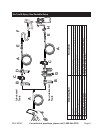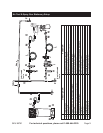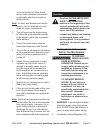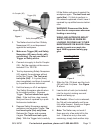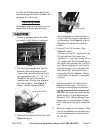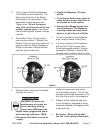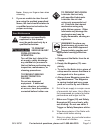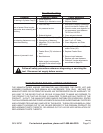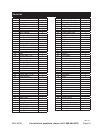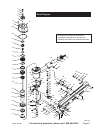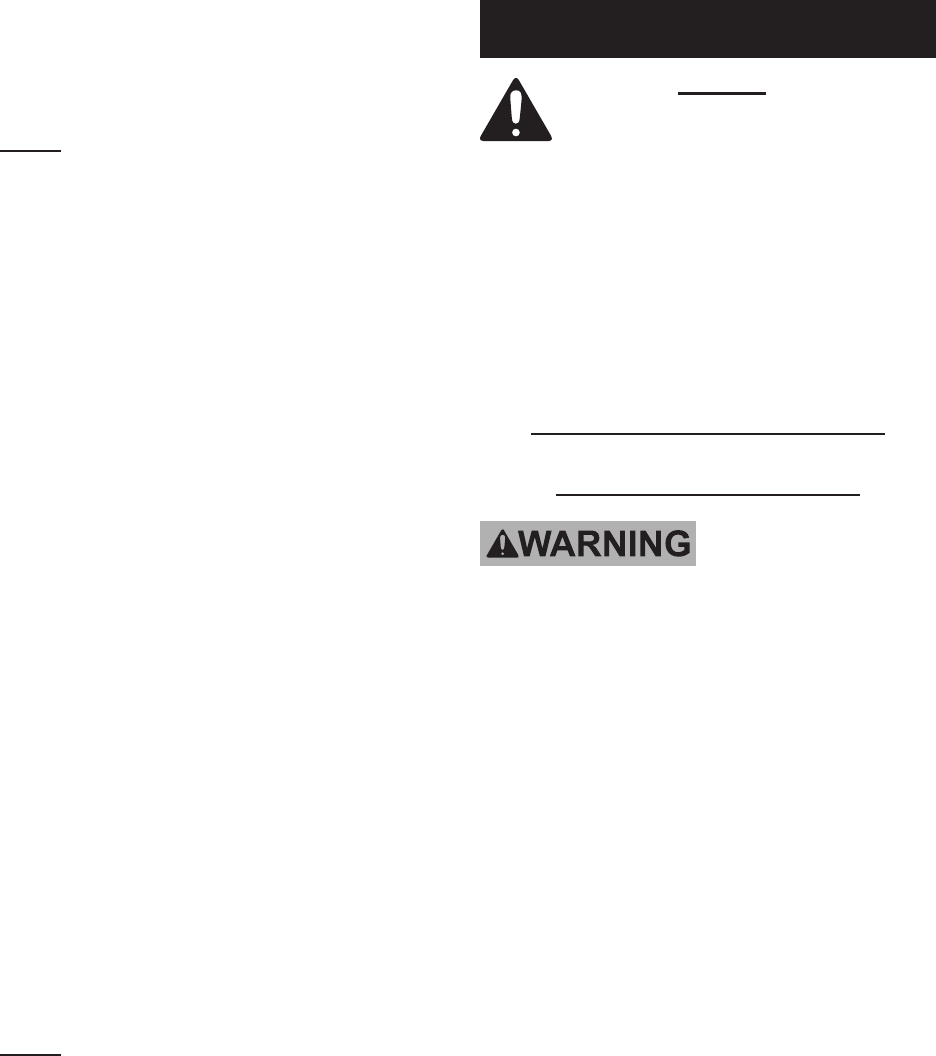
SKU 98751 For technical questions, please call 1-800-444-3353. Page 10
an air valve that will allow the air
tool to retain pressure and operate
accidentally after the air supply is
disconnected.
Note: Air ow, and therefore tool perfor-
mance, can be hindered by under-
sized air supply components.
3. The air hose must be long enough
to reach the work area with enough
extra length to allow free movement
while working.
4. Close the in-line safety valve be-
tween the compressor and the tool.
5. Turn on the air compressor according
to the manufacturer’s directions and
allow it to build up pressure until it
cycles off.
6. Adjust the air compressor’s output
regulator so that the air output is
enough to properly power the tool,
but the output will not exceed the
tool’s maximum air pressure at any
time. Adjust the pressure gradually,
while checking the air output gauge
to set the right pressure range.
7. Inspect the air connections for leaks.
Repair any leaks found.
8. If the tool will not be used at this time,
turn off and detach the air supply
and safely discharge any residual air
pressure.
Note: Residual air pressure should not be
present after the tool is disconnected
from the air supply. However, it is a
good safety measure to attempt to
discharge the tool in a safe fashion
after disconnecting to ensure that the
tool is disconnected and unpowered.
Operating Instructions
Read the ENTIRE IMPORTANT
SAFETY INFORMATION
section at the beginning of this
manual including all text under
subheadings therein before set
up or use of this product.
Inspect tool before use, looking
for damaged, loose, and
missing parts. If any problems
are found, do not use tool until
repaired.
Testing the Full Sequential
Safety Trip Mechanism
TO PREVENT
SERIOUS INJURY
FROM ACCIDENTAL
OPERATION: Detach the air
supply, safely discharge any
residual air pressure in the
tool before performing any
inspection, maintenance, or
cleaning procedures.
TO PREVENT SERIOUS
INJURY: Do not adjust or
tamper with any control or
component in a way not
specically explained within
this manual. Improper
adjustment can result in
tool failure or other serious
hazards.
1. WARNING! Even though the Nailer
should be empty during this proce-
dure, ALWAYS point the Nailer at a
piece of scrap wood when testing.
2. Completely empty Magazine (79).
Operation



